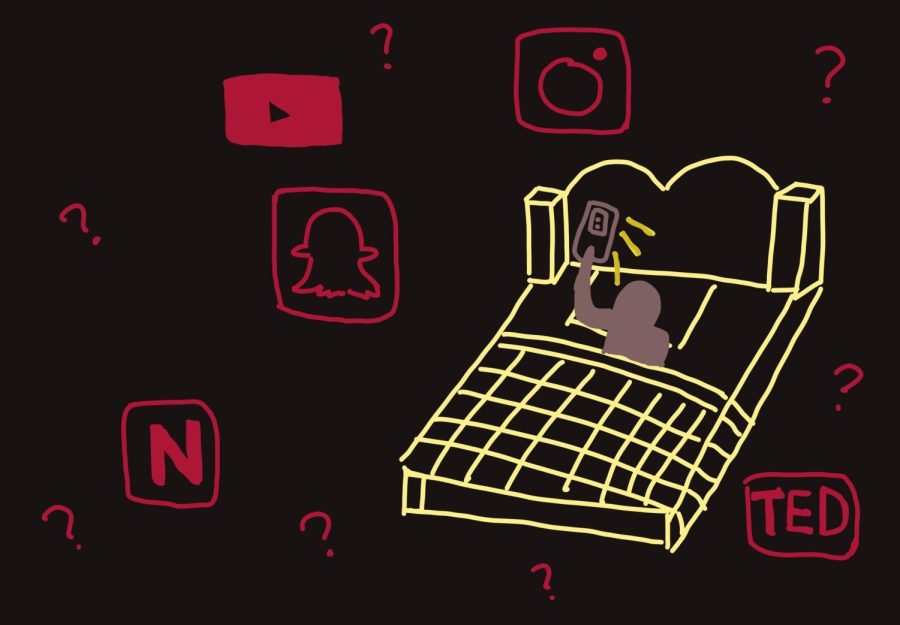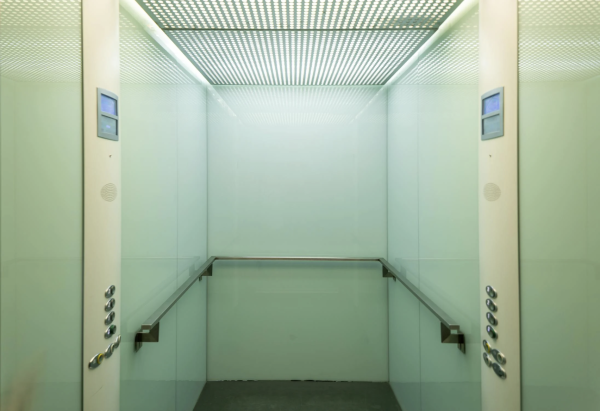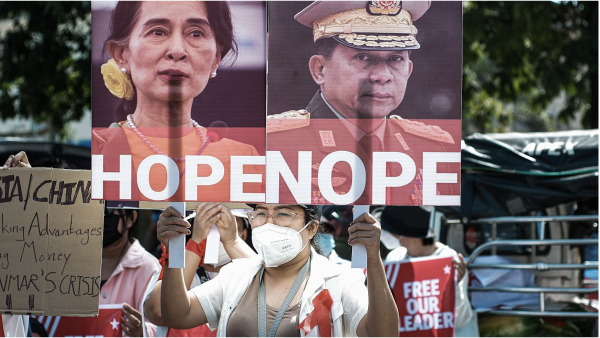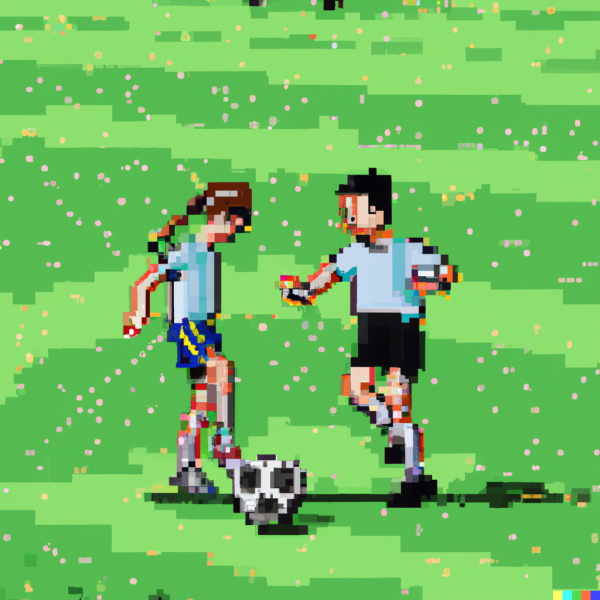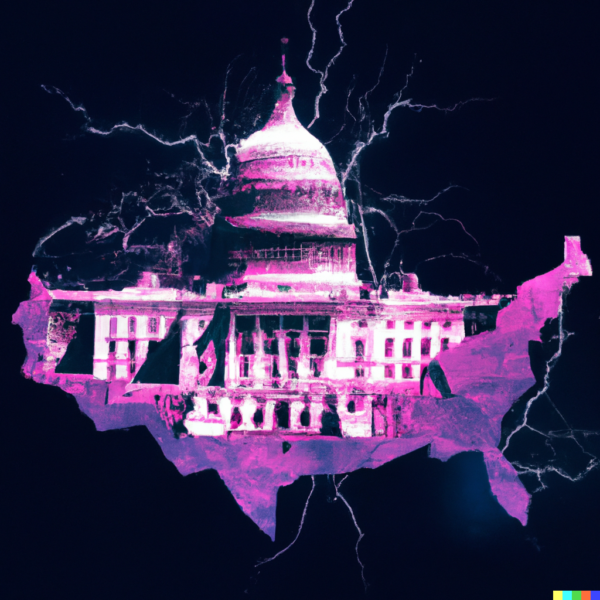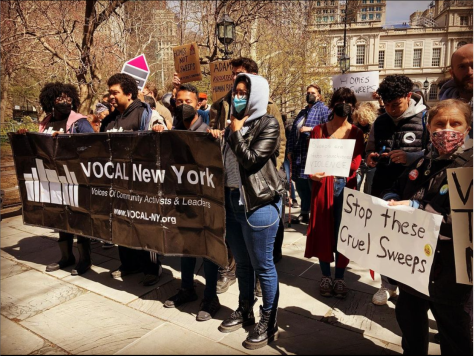Eat, Sleep, Work… Instagram? How is Technology Affecting Our Daily Routines?
Photo by Sijia Zhong
Please note: the following article contains an extensive discussion of eating disorders in the context of social media
Having a smartphone has become the new normal in our technology-dominated world. Gen Zers are the main contributors to the constant usage of cell phones, being that they have grown up during the peak of technological advancements in cell phones. As of 2018, 95% of American teens have reported having access to a smartphone, showing that access to this technology has become ubiquitous among teens. Technology severely impacts several of teens’ essential daily functions such as sleep, school work, and nutrition, which in turn have a negative impact on their mental well-being. For this reason, the fact that cell phones are readily available among all American teens regardless of race, gender, ethnicity, or socioeconomic background could lead to the development of some major issues.
***
Sleep Deprivation
Sleep is a vital part of anyone’s day, especially for teens. Sleep is when our brains process the information we have collected throughout the day. Technology is a huge disruption of our sleep patterns, keeping us awake until ungodly hours scrolling and watching whatever we feel is important at the moment. This may seem like a great idea at the time – however, waking up the next morning sleep-deprived and exhausted, you realize it wasn’t such a good idea after all. This isn’t your fault, though. There is not enough time in the day to do everything that’s expected of us and still be able to stay in the loop. We have copious amounts of homework, extracurricular activities, studying, and in turn, we have to give up some essential parts of our days to relax. Considering this, sleep deprivation due to the use of technology is an epidemic.
For the majority of teens, the last thing we do before going to bed is going on our phones. Our phones are accessible, either lying on our nightstands or sometimes even in our beds. It’s the perfect way to entertain ourselves—or so we think. When we use social media, we are bombarded with information that our brains need time to process. Therefore, when we use social media before going to bed, it can seriously impact our mental health. We tend to follow people who conform to societal beauty standards, which are generally unrealistic. Consuming this content right before bed increases our levels of anxiety and depression, which seriously impact the quality and length of our sleep. A poll conducted by the National Sleep Foundation found that more than 87% of high school students get less than the recommended hours of sleep a night (8-10 hours). Lack of sleep has been linked to an increase in depression, anxiety, low self-esteem, and has reduced healthy coping mechanisms. This, on top of consuming anxiety and depression-inducing content can lead to an unbreakable cycle of sleep deprivation.
This is happening on a much larger scale than we see. You might not notice it in your inner circle, but it is very likely that one of your peers or even friends is experiencing a severe lack of sleep. Data has shown that this is an epidemic in the United States and it most likely also happens throughout the world.
Work Versus School
We all know the feeling; it’s been a long, hard day at school. Despite your assignment hub (Schoology) being a fully online system, you spend your evening watching Euphoria on the same device you could access it on. Remember, all you have to do is switch the tab! A modern-day tragedy.
It is obvious that finding a balance between leisure and school is difficult. Especially when we still have to tie in extracurriculars. There have been several studies conducted on the effect of texting while doing schoolwork, all leading to the same conclusion: there is a negative relationship between texting or using social media while doing schoolwork and students’ GPAs. Even worse, using your phone during class, although it may temporarily alleviate your stifling indifference to the subject you have been forced to take, impedes your ability to take in-depth notes, as well as significantly decreasing your retention of information that may well be in your next test.
At UNIS, the IB is a large contributor to our academic pressures. Having to balance the workload between 3 HL and 3 SL subjects and attaining top grades takes up the majority of our focus when it comes to academic pressures. On top of that, having to come up with IA ideas for all of those subjects and execute them, write an EE, complete all the required CAS assignments, and begin college applications eats into the majority of our time to do anything “fun.” Keeping up with new TV shows and movies and staying up to date on global events is virtually impossible. It is very difficult to obtain a perfect balance between school and leisure, with school usually outweighing the importance of leisure. However, relaxing is extremely important for sustaining stable mental health. Without relaxing, we get overwhelmed and disregard our sanity. Staying organized by using schedules, a planner, and Schoology are all solutions to this, and can help add something for us to control in a world full of uncertainty.
Body Image
Our feeds vary immensely relative to what we have “liked” or commented on in the past, while an algorithm processes them and spews out similar posts. However, beauty standards and ideals are largely inescapable in any feed, whether it be TikTok, Instagram or Pinterest. “Bikini” bodies, tummy-flattening fads and unsolicited diet information plague our easily impressionable minds, begging the age-old question, “Is there something wrong with the way I look?”.
The medium of choice for promoting sales has always been digital media, dating back to the 50s. Times have changed, and conventionally attractive men and women have taken over the advertising stage. Bella Thorne, a mildly popular B-list celebrity, is paid up to “65 grand” per grid post. It’s no secret that these investments on behalf of companies work. A study conducted in 2017 found that 72% of 2,000 Instagram users surveyed have made purchases based on something they saw on Instagram— adding in a global pandemic featuring four months of quarantine, these numbers only increase.
Although influencers may not advertise dieting products as much as they did in the late 2010s due to the traction that the body-positivity movement has gained, their bodies on our feeds tell another story. And it’s not just large-scale influencers affecting younger consumers’ body images; micro-influencers on TikTok with as few as 4,000 followers habitually amass over 20,000 likes making videos with titles such as “What I Eat in a Day”. Some include calorie counts, others cover videos of their toned abs, all implying that if you adjust your eating habits, you too could have their body. While this new wave of pro-eating disorder “propaganda” is more subtle than early 2010s Tumblr blogs promoting “thinspo” (mainly pictures of conventionally attractive, abnormally thin girls to “inspire” vulnerable teens to limit their food intake), users consume and internalize these behaviors all the same. On the bright side, people have watched it happen or been affected once, and it is doubtful they would sit idly by a second time. As we gain experience in social media trends, recognizing that it’s been done before, we can alert companies and users before it’s too late. Yet again and again, we fail to put an end to the issue. People preach body positivity and turn around to criticize themselves. They can post about it and believe that it applies to others, but by some mysterious rule, it doesn’t to them. These ideals were embedded into our society decades before the birth of social media, and the world passed them on to us. We can break the cycle only if, first and foremost, we are willing to accept ourselves.
***
Technology isn’t all bad— it allows us to stay connected with friends and family, keep up with current events, and is a prime source of entertainment for many. Additionally, the increasingly popularized use of web-based learning management systems increases our productivity and levels of engagement by providing us with opportunities to learn in diverse mediums. The easy access to all kinds of enriching information, study guides, and how-tos enable us to have a deeper and better understanding of the topics we are covering during class time. These are all very significant aspects of using technology, yet it is spilling over into our sleep time, our school work, and our nutritional habits. A popularized solution, especially in parents, is to confiscate our phones altogether. What this demographic fails to recognize, however, is that social media has become one of our only means of connection in an increasingly disconnected world, even more so with the recent and ongoing pandemic.
It is extremely difficult to find a quick fix for everyone to agree upon. To be frank, there is no concrete solution. What needs to happen is societal and systemic change, which is a challenging and demanding process. In order to attain social change, as a community we need to dismantle the societal belief of ideal beauty and material standards embedded in our lives. Since these standards have been the norm for years, it is tremendously tough to change them, but not impossible. Continuing to empower body positivity movements and protesting against unfeasible standards of success will eventually lead to widespread change. Demanding the filtering of potentially harmful content from large corporations such as Instagram, Snapchat, Twitter, and many other social media outlets will create dynamic reform and perhaps enforce real change in collective beliefs.

Hi! My name is Gracinha, class of 2023. I'm really interested in writing about mental health, and my favorite reads are opinion pieces. I'm super excited...

Hey! I'm Lola, class of 2023. I have a wide range of riveting interests that I will not mention here! See you in my next article :)

Hi! I'm Sijia Zhong from the class of 2023. I'm the Academics Section Editor for UNISVerse and I like to write articles related to school events such as...



